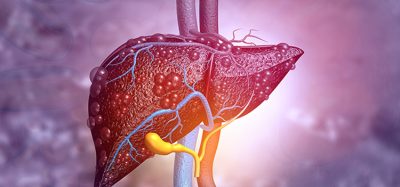Proscia: advancing pathology AI development
Posted: 9 October 2024 | Drug Target Review | No comments yet
Proscia has launched two new products which will help to accelerate discovery and development of new therapies and diagnostics.


On October 2, 2024, Proscia announced the launch of Concentriq® Embeddings and the Proscia AI Toolkit, which will enable life science organisations to accelerate the discovery and development of new therapies and diagnostics.
David West, CEO of Proscia, commented: “It’s an exciting time at the intersection of medicine and technology. The proliferation of digital pathology and explosion in capabilities of today’s AI models bring a totally new scale to how to develop therapies and diagnose patients…We’re approaching a world where experiments that once took years can now be run in silico in a matter of days, and life-saving treatments that reach only a fraction of patients today could soon reach everyone.”
Improving accuracy of AI models
Concentriq Embeddings, integrated into Proscia’s Concentriq platform, delivers pathology foundation models to AI developers and pathology and data science teams, meaning they can utilise their organisation’s large proprietary datasets and execute models in routine workflows. High-dimensional numerical representations can be generated from whole slide images and are initially derived from four powerful foundation models: DINOv2, PLIP, ConvNext, and CTransPath.
There are plans to continuously add new models as they evolve, ensuring that researchers have access to the latest state-of-the-art tools. Ultimately, this will improve downstream performance, as well as the accuracy of biomarker discovery and other critical tasks.
Furthermore, scientists can choose the best foundation model for their specific requirements, with applications ranging from image classification and segmentation to risk scoring and multimodal data integration, supporting rapid prototyping and large-scale AI model development directly within the Concentriq platform.
The Concentriq platform already stores pathology data, so researchers can leverage this data instantly for AI development. Therefore, time-consuming data migration, external processing, and image format standardisation is eliminated. Also, the platform is supplemented by Proscia’s real-world data (RWD) offering, providing access to high-quality, diverse multimodal datasets so researchers can build more accurate and clinically viable AI models.
Reducing AI development time
Concentriq Embeddings showed its ability to greatly advance AI development in pilot programmes with a top CRO and a top pharmaceutical company. In one internal case study, data scientists developed algorithms 13 times faster, generating 80 AI-based breast cancer biomarker prediction models in under 24 hours. In a production setting, pharmaceutical companies can reduce AI development time from weeks to hours.
Community-driven approach
Proscia’s AI Toolkit, a suite of open-source resources that fosters a collaborative environment, complements Concentriq Embeddings. The tools included have been developed by Proscia’s AI R&D team and are now being shared with the broader community.


The toolkit features a Python client for seamless API integration with Concentriq Embeddings, comprehensive tutorials paired with Python code in Jupyter Notebooks, enabling users to learn and implement AI quickly, and a growing library of helper functions for tasks like image tiling and organising API outputs. These resources will aid the rapid integration of Concentriq Embeddings into workflows and avoid navigating technical hurdles.
Also, the expanding community of Concentriq users is encouraged to contribute their own tools. This collaborative, community-driven approach will both improve the implementation of foundation models and broaden the use of AI.
Julianna Ianni, VP of AI Research & Development at Proscia, stated: “Concentriq Embeddings not only accelerates AI development but will spark a new wave of innovation in pathology. It empowers teams to achieve breakthroughs faster and at a scale we’ve never imagined before, setting the stage for transformative advancements in both research and patient care.”
Related topics
Artificial Intelligence, Drug Development, Drug Discovery, Pathology & Molecular Medicine, Therapeutics
Related organisations
Proscia
Related people
David West (Proscia), Julianna Ianni (Proscia)








